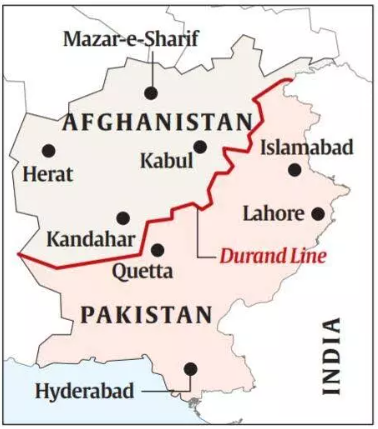900 319 0030
enquiry@shankarias.in
Recently, Pakistan government launched a nationwide deportation operation against 17 lakh undocumented Afghan refugees.
Afghanistan and Pakistan share a 2,640km long border which passes through rugged mountains, densely forested valleys and narrow rock passages. Its topography makes it porous and difficult to control.

Human rights agencies estimate that about 60% of Afghan refugees in Pakistan are undocumented.
References